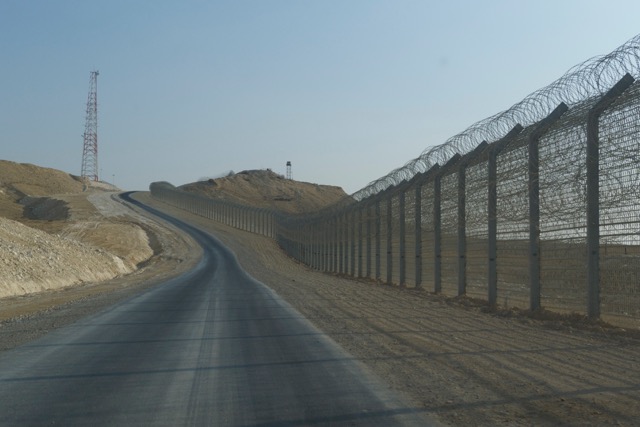Israel’s Pushback Policy at the Border with Egypt
Following the completion of construction of the border fence along the Israeli-Egyptian border, the number of asylum-seekers attempting to cross in Israel significantly diminished, but the flow of people never stopped. During 2013, only 43 asylum-seekers succeeded in entering in Israel. In the first six months of 2014, the number of asylum-seekers who managed to enter Israel was 19.
Eight testimonies collected by the Hotline for Refugees and Migrants from IDF soldiers who served along the border during 2014, indicate that the reduction in entrances to Israel is attributed, in part, to the implementation of a “pushback policy”. According to the testimonies only several individuals still attempt to cross the border every month. A soldier from the Caracal Battalion of the Nahal Brigade testified of her time at the service along the border, during February 2014: “In the reception speech, the Battalion Commander told us about our three enemies: terrorists, smugglers of weapons and drugs, and foreigners. The order about the foreigners is clear: no one passes the fence.”
The soldiers serving along the fence all reported that their commanders told them that those arriving at the border are not real refugees and are in fact coming to Israel to look for work. When ‘foreigners’ are spotted in the cameras (that include night vision and can detect objects for distance of 5 KM), the soldiers are ordered to call the coordination unit that calls the Egyptian military stationed at the border. As a female soldier described it: “we call the Egyptians and they do the dirty work for us.” If the asylum-seekers reach the border before the Egyptian forces arrive, the soldiers are ordered to keep guard on their side of the fence. The soldiers tell the asylum-seekers that they cannot cross and shout at them. If the foreigners still attempt to climb the fence, the soldiers can hit them with the 2-meter antenna of jeeps, push the barrel of the rifle through the fence to make them fall, “and in case of this fail, we can shoot them in the feet”, as reported by a Nahal soldier.
Those who succeed in crossing the border usually arrive at times when the soldiers manning the border cameras miss the arrivals either due to inattention of weather conditions. One of the soldiers reported that he heard that a soldier manning cameras was recently punished by extending her rotation and preventing her from going home for letting five foreigners enter Israel. The Company Commander accused the soldier by saying “I suspect that you really care about these Sudanese.”

The border fence between Israel and Egypt. Credit: Dan Connel
The latest “pushback” incident the Hotline is aware of occurred in late August 2014 when about ten South Sudanese asylum-seekers who previously lived in Israel and were deported in 2012 attempted to re-enter Israel. The information first arrived from an Israeli activists who kept contact with the families. He was told by their relatives that they crossed the border to Israel. Among the ten, there were three mothers with small children, two of them only one-month old. The Hotline failed to locate the families in the Israeli prison, but shortly after, received information from a soldier at the border, according to which families who fit the description reached the border and their entry was denied. The soldier could not tell from where was the group since they did not check, but he reported that they were told that the Egyptian branch of the ICRC took the family into Egypt. According to the activist who is in touch with the relatives, only one of them was located in an Egyptian prison and the others are still missing.
